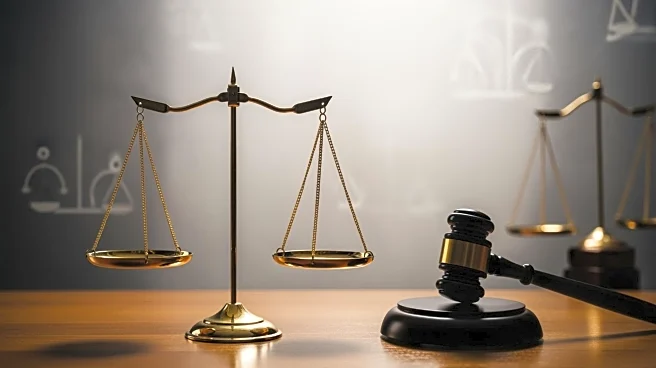What's Happening?
A federal judge in Tennessee has mandated that the Department of Justice (DOJ) and the Department of Homeland Security (DHS) refrain from making prejudicial statements regarding Kilmar Abrego Garcia, who
is involved in a criminal case. U.S. District Judge Waverly Crenshaw issued the order, highlighting that officials, including DHS Secretary Kristi Noem, have made inaccurate statements about Abrego Garcia's alleged gang affiliations. The judge emphasized that such statements could materially prejudice the ongoing prosecution. The case has drawn attention due to its unusual nature, with Abrego Garcia previously deported to El Salvador despite a court order against it, and later returned to the U.S. to face human smuggling charges. The judge has also ordered the government to provide documents explaining the shift from a 'deport but not prosecute' stance to 'prosecute and then deport.'
Why It's Important?
This development underscores the tension between federal agencies and the judiciary over the handling of immigration-related prosecutions. The judge's order to stop prejudicial statements aims to ensure a fair trial for Abrego Garcia, reflecting broader concerns about due process in immigration cases. The case also highlights the potential misuse of prosecutorial discretion, as the judge questions the motivations behind the decision to prosecute Abrego Garcia. This could have implications for how similar cases are handled in the future, potentially affecting the rights of immigrants facing criminal charges in the U.S. The outcome of this case may influence public perception of the justice system's fairness, particularly in cases involving allegations of gang affiliations.
What's Next?
The court has scheduled two days of hearings next week to further examine the case. These hearings will likely address the motivations behind the prosecution and the government's compliance with the judge's orders. The DOJ and DHS may face increased scrutiny regarding their handling of the case, and any failure to comply with the judge's directives could result in sanctions. The outcome of these hearings could set a precedent for how similar cases are managed, particularly concerning the balance between national security concerns and individual rights.








